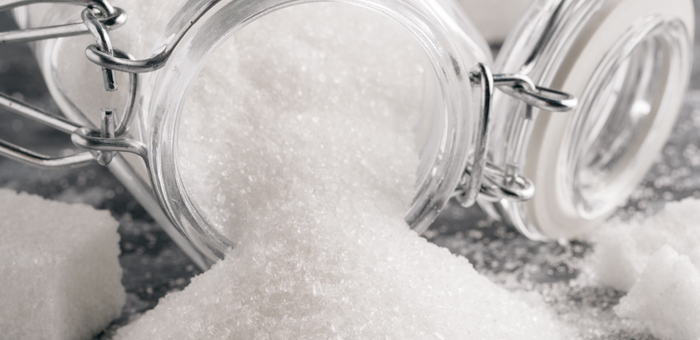Artificial Sweeteners – Not a Healthy Substitute

The recently introduced sugar tax on soft drinks means that many drinks now include artificial sweeteners as well as or instead of the sugar. This may mean that they have fewer calories but it does not in any way mean that they are a good alternative.
Over the past few years studies have found that low calorie sweeteners such as aspartame and sucralose are linked to increased food consumption, weight gain, increased body fat and excess insulin production. Large scale, long term studies on humans find that increases in weight and abdominal fat are observed among participants who use diet sodas and artificial sweeteners daily (1,2 3,4,5).
New research using stem cells has found that consumption of low-calorie sweeteners could promote metabolic syndrome and predispose people to diabetes (6). Metabolic syndrome describes a group of conditions including high blood pressure, raised blood sugar levels, imbalanced cholesterol and increased abdominal fat. Together these increase the risk of diabetes, heart disease and the chances of suffering a heart attack or stroke.
The research indicates that low calorie sweeteners promote fat accumulation within cells by increasing glucose entry into the cells. The sweeteners also lead to overexpression of fat producing genes, slow down metabolism and promote free radical accumulation and inflammation inside the cell.
Sadly, millions of people around the world consume food and drinks containing artificial sweeteners in the belief that they will help them to lose weight. These foods may be labelled as “low sugar”, “sugar free”, “low fat”, “lite” and “diet” and are often marketed as aids to health and weight loss. It turns out the very opposite may be true.
For tips on how to reduce your dependency on sweetness from artificial sweeteners or sugar see the blog post Break the Sugar Habit.
References
- 1. Physiol Behav. 2016 Apr 26. pii: S0031-9384(16)30184-6. Low-calorie sweetener use and energy balance: Results from experimental studies in animals, and large-scale prospective studies in humans. Fowler SP
- 2. Trends Endorcrinol Metab. 2013 Sep;24(9):431-41. Artificial sweeteners produce the counterintuitive effect of inducing metabolic derangements. Swithers SE
- 3. J Pharmacol Pharmocother. 2011 Oct;2(4):236-43. Sugar substitutes: Health controversy over perceived benefits. Tandel KR
- 4. PLOS Medicine, January 2017 Artificially Sweetened Beverages and the Response to the Global Obesity Crisis. Borges M, Louzada M, de Sa TH, Laverty AA, et al.
- 5. Indian Heat J. 2018 Jan – Feb;70(1):197-199. The truth about artificial sweeteners – Are they good for diabetics? Purohit V, Mishra S.
- 6. The Endocrine Society. Consuming low-calorie sweeteners may predispose overweight individuals to diabetes. ScienceDaily. ScienceDaily, 18 March 2018.